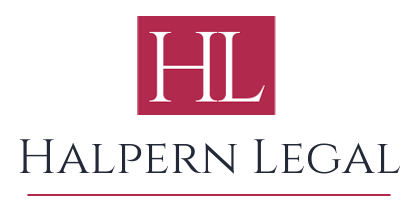Bankruptcy Lawyers
Bankruptcy can be a daunting prospect, but it offers a path to financial relief for anyone facing overwhelming debt. However, it’s important to have a comprehensive understanding of bankruptcy and its consequences before diving right in.
In this FAQ, we’ll address common questions about bankruptcy and the appropriate legal guidance. We’ll also explore the implications of bankruptcy on future financial prospects, the different types of bankruptcy available to you, and the debts that you’ll still have to pay off despite filing for bankruptcy. Read on to get informed, and get in touch with a bankruptcy specialist as soon as possible.
What Is Bankruptcy, And What Are The Consequences?
As a bankruptcy lawyer like our friends at The Law Offices of Neil Crane can explain, bankruptcy is a legal process that offers financial relief, but it has long-term consequences. After declaring bankruptcy, it can be challenging to obtain loans, purchase a house, or secure employment due to the impact on credit. Certain types of bankruptcy can remain on your record for up to ten years.
What Are The Different Types Of Bankruptcy?
There are two primary types of bankruptcy: Chapter 7 and Chapter 13. Chapter 7, also known as liquidation bankruptcy, involves selling non-exempt assets to repay debts. Chapter 13, known as reorganization bankruptcy, allows you to retain assets while adhering to a court-approved payment plan.
It’s important to remember that while these chapters primarily apply to personal bankruptcy, there are other types of bankruptcy, such as Chapter 11, which mainly applies to businesses. Consulting a lawyer will help you understand which chapter is most suitable for your specific financial situation and goals.
If I File Chapter 7 Bankruptcy, Do I Still Need To Pay Off My Taxes?
Yes, unfortunately. In most cases, you’ll have to pay taxes, even if you file for Chapter 7 bankruptcy. Certain debts, including taxes, student loans, child or spousal support, fines owed to the government, and debts resulting from injury caused while intoxicated, are not discharged through bankruptcy.
What Debts Are Not Dischargeable In Bankruptcy?
While bankruptcy provides relief from many debts, certain obligations must still be paid. You can’t use bankruptcy to get out of paying student loans, child support, and other fines you may owe the government. If you caused injury while under the influence of drugs, alcohol, or both, and were subsequently sued, you’ll still have to pay off those financial damages as well. Luxury goods purchased on credit within 90 days prior to filing for bankruptcy may also require payment.
Why Should I Consult A Bankruptcy Lawyer?
Consulting a bankruptcy lawyer is essential if you want to navigate the complex process of bankruptcy. A lawyer can provide guidance, evaluate your options, and help you understand the implications of your choices. They have the expertise to protect your rights, ensure proper procedures are followed, and help you develop a strategic approach to your bankruptcy case.
Bankruptcy can provide relief from overwhelming financial obligations, but it comes with long-term consequences. All the more reason to do your research and reach out to a qualified bankruptcy lawyer. A bankruptcy lawyer can guide you through the process, explain the potential impacts, and help you make informed decisions to secure your financial future.
